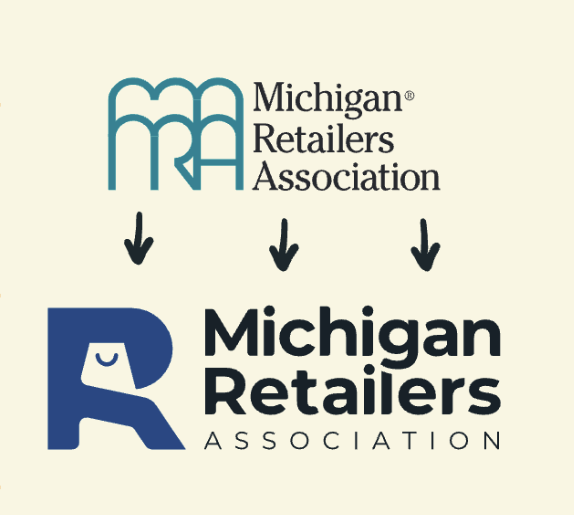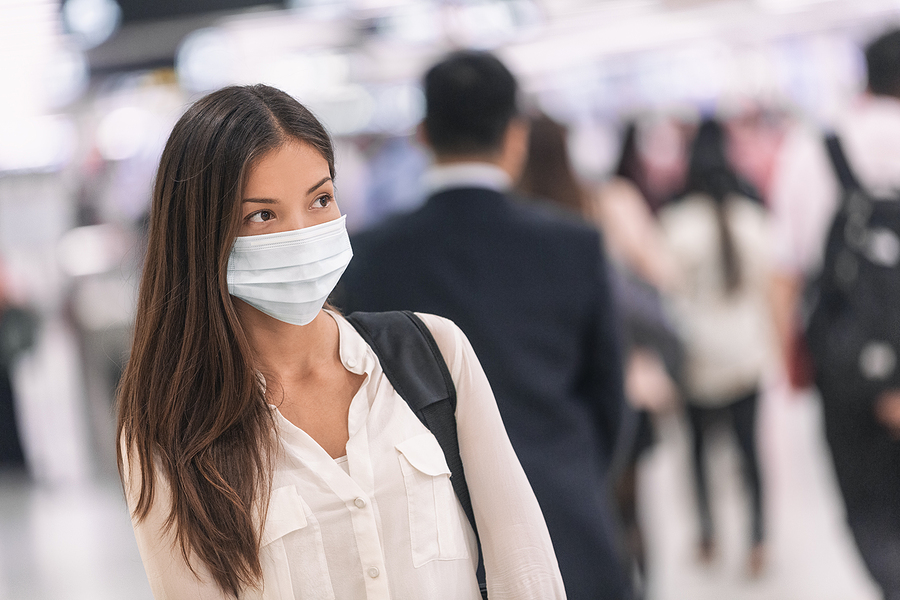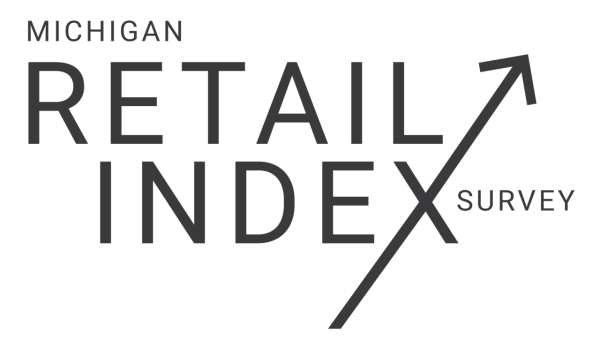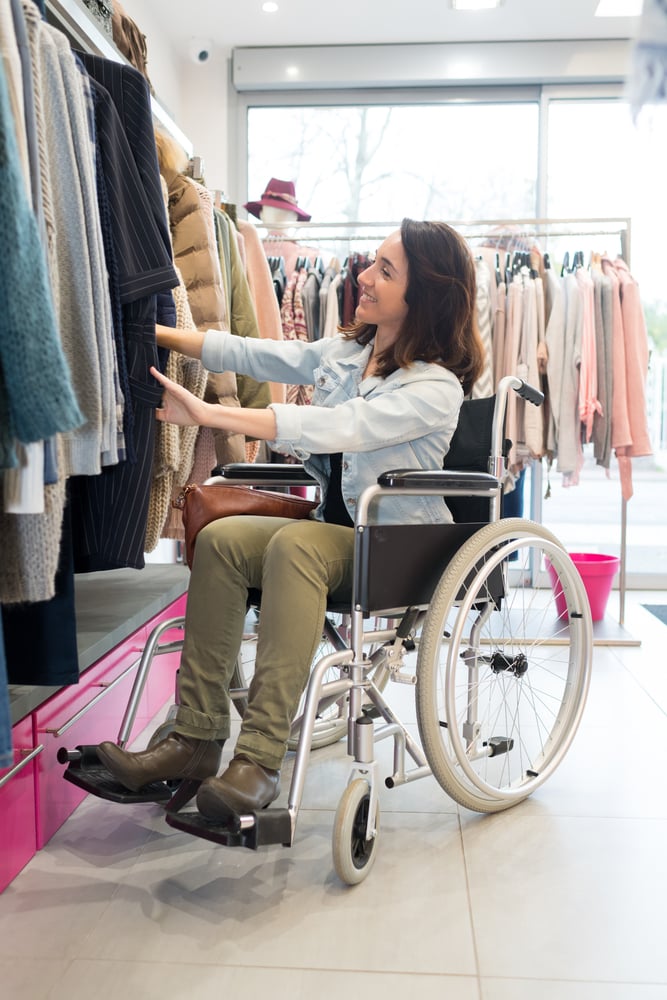Face mask enforcement has become a worrisome issue for retailers with the latest order from the Governor requiring retailers to bar entry and refuse service to those not wearing a mask, unless they fall under one of the exemptions. You’ve asked Michigan Retailers Association a lot of questions, so we’ve compiled this list of FAQs after inquiring with the governor’s office and our federal partners on some of the conflicting guidance and laws. We’re still waiting on answers, but we can offer these suggestions and information to help inform your practices.
Please note this should not be considered legal advice and it is subject to change as the state and federal government review these issues.
Q: Under Executive Order 2020-147 who is exempt from wearing a mask?
A: The order states the requirement to wear a face covering does not apply to individuals who:
- Are younger than five years old
- Though children two years old and older are strongly encouraged to wear a face covering, pursuant to guidance from the Centers for Disease Control and Prevention (“CDC”);
- Cannot medically tolerate a face covering;
- Are eating or drinking while seated at a food service establishment;
- Are exercising when wearing a face covering would interfere in the activity;
- Are receiving a service for which temporary removal of the face covering is necessary to perform the service;
- Are entering a business or are receiving a service and are asked to temporarily remove a face covering for identification purposes;
- Are communicating with someone who is hearing impaired or otherwise disabled and where the ability to see the mouth is essential to communication;
- Are actively engaged in a public safety role, including but not limited to law enforcement, firefighters, or emergency medical personnel;
- Are officiating at a religious service; or
- Are giving a speech for broadcast or an audience.
Q: What medical conditions make someone unable to tolerate wearing a mask?
A: Below are some examples of claimed disabilities or medical conditions that may prevent a person from wearing a face mask or other face covering:
- Respiratory disabilities such as asthma, chronic obstructive pulmonary disease (COPD), or cystic fibrosis;
- Post-traumatic stress disorder (PTSD), severe anxiety, or claustrophobia;
- Autism or related conditions that make persons sensitive to touch and texture, or where covering the nose and mouth with fabric can cause sensory overload, feelings of panic, and extreme anxiety; and
- Cerebral palsy or condition resulting in limited mobility that makes it difficult to put on or take of a face covering, or difficult to operate assistive technology with their mouth.
Q: What steps does the state expect retailers to take to enforce mask wearing in stores?
A: MIOSHA recognizes that you can’t put your employees in a potentially dangerous situation and employees should never attempt to confront or physically try to deny entry to an agitated customer. They recommend you have a clear policy in place with your employees that is routinely followed.
MIOSHA defines a “good faith effort” as taking the following steps:
- Posting a clear sign that masks are required to enter (like this one provided by the state)
- Approaching and reminding customers they are required by law to wear a face covering to enter
- Offering alternative methods to shop if they don’t want to wear a mask (curbside, online, over the phone, etc.)
- Stopping the engagement with the customer and contacting the authorities if someone becomes agitated and refuses to wear a mask to enter the store
Q: Do I have to deny entry/service to someone who says they are medically unable to tolerate wearing a mask?
A: After speaking with someone representing MIOSHA on Friday, they recommended allowing people who have a medical reason not to wear a mask to enter and shop. Please note that you should not ask what the medical reason is to avoid potentially violating HIPAA laws. (HIPAA is primarily limited to healthcare plans/providers but it’s best to avoid asking.) Remind the customer they need to wear a mask and assume they have a medical condition if they refuse. MIOSHA does not expect retailers to deny checking someone out (but checkout employees need to be protected with plexiglass shields etc.).
It should be noted that despite the exemption and the governor’s office’s support for accommodating those with medical reasons, the state posted in a FAQ that “no business, including local and state government offices open to the public, may provide service to a customer or allow a customer to enter its premises, unless the customer is wearing a face covering as required by this order.” Certainly, the Order has created a paradox, since a retail employee cannot physically stop someone from entering the building and it would also be a MIOSHA violation to put an employee in harm’s way by asking them to confront customers in that manner.
Q: Can I deny entry to someone even if they are medically unable to tolerate wearing a mask?
A: Generally, the ADA protects people with disabilities. However, it does not provide protection if the person with a disability poses a direct threat of substantial harm that cannot be reduced by a reasonable accommodation. On guidance posted by the U.S. Equal Employment Opportunity Commission (EEOC), which governs the employer-employee relationship, they stated the COVID-19 pandemic meets the direct threat threshold based on guidance from the CDC and public health authorities.
If you attempt to deny entry/service to a customer you should still provide an alternative method to accommodate them to avoid any issues with the federal Americans with Disabilities Act (ADA). If you have in place strong, prompt and effective options to provide delivery or pick-up, it will be easier to defend your strict enforcement of government orders. If you do use telephone or internet for alternative service, make sure they are accessible to the disabled, especially those who are blind or deaf. If people are being served effectively, they are much less likely to sue. Please note, the ADA is a “supreme” federal law, compared to the state or local orders, and a court may one day say your ADA obligations trump your state and local obligations.
Q: Can I ask for proof of a medical condition that prevents someone from wearing a mask?
A: Asking for proof of a medical exception to the face covering policy comes with risks and we advise against having your employees review or adjudicate the medical conditions of your customers.
The safest and most conservative approach is to honor the customer’s word regarding their need for an exception and not require proof. If the store begins to have a large number of claims for disability exceptions, the retailer can re-evaluate and consult with legal counsel whether there is a stronger argument for requiring proof based on the “necessity” of such a requirement with such widespread claims and/or the “direct threat” presented by such widespread exceptions.
Q: Will the police cite people for not wearing a mask?
A: It depends. They have the power to do so, but many local law enforcement agencies have issued statements explaining that they will not write tickets to individuals for not wearing masks since the mask requirement has not been promulgated into law through the legislative process. Instead, they will refer the general public to contact other entities like the attorney general’s office, the governor’s office and local health departments.
Q: What will the police do to assist retailers?
A: In our conversations with law enforcement officers, we believe they will continue to respond to calls when customers are threatening or aggressive with store employees. Officers may arrest/charge someone with disorderly conduct, causing a disturbance and/or trespassing.
Q: Do I need an employee stationed at the door?
A: MIOSHA will not expect someone to be stationed at the door if there is someone nearby at a checkout counter or a greeter, etc. who can monitor the door. Simply posting a sign will not be considered enough.
Q: What would generate a fine/penalty from MIOSHA?
A: MIOSHA is relying on the “general duty clause” in statute to allow them to enforce executive orders. Because E.O. 2020-147 references “protecting workers” MIOSHA will be involved in monitoring businesses’ adoption of the mask enforcement requirement. They said it is an easy citation and fine on businesses who are not requiring their employees to wear face coverings/face shields. That said, their stated goal is to seek compliance and educate businesses vs. writing citations. There is a free hotline that businesses can call with questions; 855-SAFE-C19. Businesses can also request a free consultation with someone who comes out to the store without fear of penalty.
Q: Will state departments/agencies actually suspend licenses and what criteria are they using?
A: MRA has inquired with a number of state agencies about their policies to actually suspend business licenses. Each indicates that they are reviewing the order and discussing it internally and with the Attorney General’s office. Here is a list of licensing agencies and licenses we’ve reached out to:
- Michigan Liquor Control Commission: liquor licenses
- Department of Agriculture and Rural Development: Retail Food Establishment licenses and Extended Retail Food Establishment licenses
- Department of Licensing and Regulatory Affairs: pharmacy licenses
- Michigan Lottery Commission: lottery licenses
- Department of Treasury: sales tax licenses
Q: I don’t like this order, what can be done to change it?
A: Please track the number of incidents or times the police are called for mask enforcement/escalations at your stores. It may help us push back from a safety perspective if things get out of hand.






